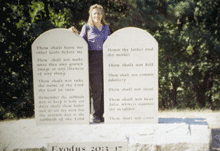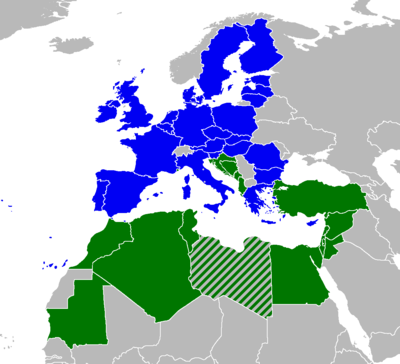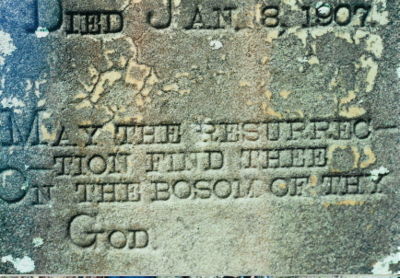
Large Display of the Ten Commandments in Arkansas, 1998
The summer 2008 edition of CGI’s International News has the following in an article from its Mike Nolen titled Was Christ the “End” of the Law?:
Most suppose our Savior came to put an end to the law, and the passage typically quoted in support of this belief is Romans 10:4, which reads: “For Christ is the end of the Law for righteousness to every one that believeth.” Am I to understand that the One who said, “Think not that I am come to destroy the law” is taught by the Apostle Paul as the One whose coming abrogated the law as a way of righteousness, and therefore Christians are released from any obedience to the law? If the reader is not predisposed to entertain contradictions in the Word of God, then, let us endeavor to understand what Paul is actually saying. The controversy involves not the verse, but one word within the verse—“end.” The English word “end” typically invokes thoughts of cessation, or the point at which something is terminated. The word “end” in this passage translates from the Greek word telos, which has a variety of meanings. Not only can telos refer to the point at which a thing ceases, but it can also connote aim, outcome, purpose, and goal…
Before we address Paul’s objective, take notice of the following additional words by Paul regarding the law to the Roman church which, in context, contradict not Romans 10:4, but rather the antinomian termination view:
• “…For not the hearers of the law are just before God, but the doers of the law shall be justified…” (Romans 2:13).
• “…Do we then make void the law through faith? God forbid:yea, we establish the law” (Romans 3:31).
• “…Wherefore the law is holy, and the commandment holy, and just,and good” (Romans 7:12).
When we honestly study Paul’s analysis of the law, we find not abrogation of the law, but a clarification of the true intent of the law. In an effort to understand what Paul is saying in Romans 10:4, one must consider the broad context of Romans chapters 9–11, which primarily involves the rejection of Christ and a misunderstanding of the true purpose of the law by God’s people Israel. Instead of attaining righteousness by faith, Israel sought its own righteousness relying on obedience to law rather than recognizing God’s intention on their behalf through Jesus Christ (Romans 9:31–10:3)…
Paul presents Christ as the goal of the law Who offers righteousness to all believers and elaborates in verse 5 by quoting Leviticus 18:5, “whoever follows the way of righteousness taught by the Law shall live by it.” Paraphrasing Deuteronomy 30:12–14 in verses 6–8, Paul shows that achieving the righteousness required by the law in order to live (Leviticus 18:5) is not insurmountable, does not require extraordinary effort, like climbing to heaven to bring Christ down or descending into the abyss to raise Him up. This was Paul’s way of pointing out the Pharisees’ misinterpretation of the law, which created an impossible situation the Jews pursued via their own efforts. Question: Would God establish a law designed to be a yoke and bondage upon the people? The Apostle Peter did not believe so (Acts 15:10).
Jesus said, “… I have kept my Fathers commandments …” (John 15:10). He was the only human who was completely obedient to the law’s requirements (Philippians 2:8; Romans 10:5). During the Sermon on the Mount, He made the following enlightening statement, which has become a stumbling stone to many a prospective antinomian: “Think not that I am come to destroy the law, or the prophets: I am not come to destroy, but to fulfill” (Matthew 5:17). The law of God has reached its fulfillment in Him. Jesus is the embodiment, the purpose, and the goal, of God’s holy righteous law. He was the object of all the promises, types, and sacrificial ceremonies (Hebrews 10:1–8). Paul understood this—thus his statement in Romans 10:4. Jesus and Paul were not incongruous. The righteousness required by the law is fulfilled through the Word, which is in the heart and in the mouth, in essence, by believing and confessing that Jesus is the Christ (Romans 10:8–10). Christ is not the end, but the goal of the law in the sense that without His presence in our lives, we are unable to live by the just requirements of the law.
Not only did Paul and Christ not do away with the ten commandments, perhaps Protestants (many of whom mistakenly believe that they are done away) should also consider what their leader, Martin Luther wrote on the subject of the ten commandments:
God threatens to punish all who break these commandments…Therefore, we should also love and trust in Him and gladly do what He commands” (Luther’s Small Catechism with Explanation. Concordia Publishing House, St. Louis, 1986, p.12).
The fruits of this sin are afterwards the evil deeds which are forbidden in the Ten Commandments…we hold that the Law was given by God, first, to restrain sin by threats and the dread of punishment, and by the promise and offer of grace and benefit (Luther Martin. The Smallclad Papers. 1537. Translated by F. Bente and W. H. T. Dau Published in: _Triglot Concordia: The Symbolical Books of the Ev. Lutheran Church_. (St. Louis: Concordia Publishing House, 1921), pp. 453-529).
…teach them first of all these articles, namely the ten commandments…But as for those that will not learn, let them be told that they deny Christ and are no Christians…(Luther M. The Short Catechism, 1529. Cited in Bettenson H, ed., Documents of the Christian Church. London: Oxford University Press, 1943, p. 225).
So Martin Luther taught that those that will not learn, and apparently not try to keep, the ten commandments are not Christians–on that point he was correct.
However, whether they know them or not, most people throughout the world seem to live as if the Ten Commandments do not exist.
Several articles on the Ten Commandments include:
Were the Ten Commandments in Effect Before Mount Sinai? Some have said not. This article provides biblical quotes to answer this important question.
Job and the Ten Commandments Was Job written prior to Mount Sinai? Did Job know about the ten commandments? This article provides biblical answers to those questions.
What Did Jesus Teach About the Ten Commandments? This article quotes what Jesus actually said about them (His words are in red).
Were the Ten Commandments Nailed to the Cross? Some have said so. This article provides some biblical quotes to answer this important question.
What Did Paul Actually Teach About the Ten Commandments? Many say Paul taught against the ten commandments. Is this true? This article quotes Paul with his words in green.
Are the Ten Commandment Still in Effect? This article quotes the ten commandments and combines some of the previous articles into one article about the ten commandments. The commandments are shown at Mount Sinai, before Mount Sinai, in the teachings of Jesus, after the crucifixion, and in the teachings of Paul. It addresses the most common “traditions of men” regarding them as well.
Were the Pharisees Condemned for Keeping the Law or Reasoning Around it? Many believe that the Pharisees were condemned for keeping the law, but what does your Bible say? If they were not condemned for that, what were they condemned for?
The Ten Commandments Reflect Love, Breaking them is Evil Some feel that the ten commandments are a burden. Is that what Jesus, Paul, Peter, James, and John taught?
Was the Commandment to Love the Only Command? Some have stated that John’s writings teach this, but is that what the Bible really says?
The Ten Commandments and the Early Church Did Jesus and the Early Church keep the ten commandments? What order were they in? Here are quotes from the Bible and early writings.




 VS.
VS. 





